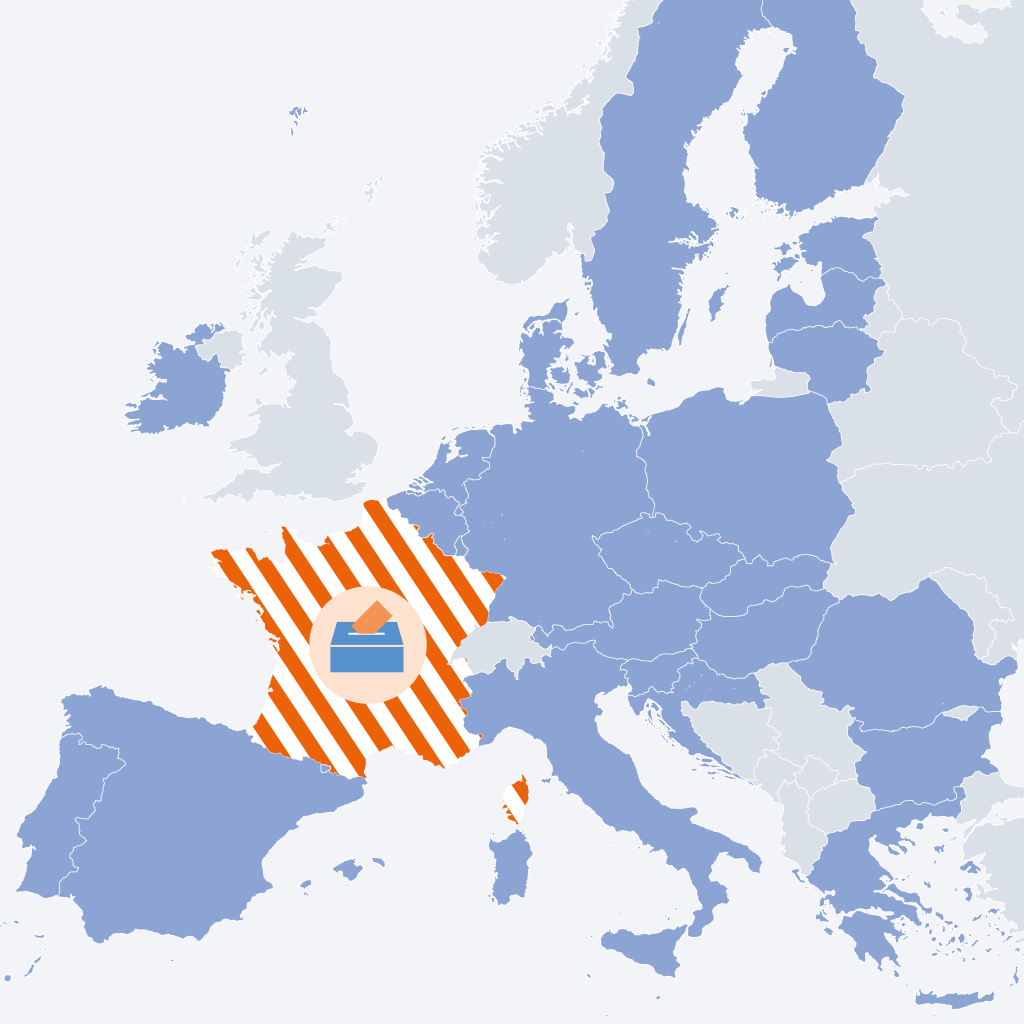[FR] The European elections and France: two paradoxes, eternal victims

There were fears of a major surge in support for populist-extremist parties in the European elections on 9 June 2024: while they did make gains, they will ultimately win fewer than 20 seats in the European Parliament. The most striking result of these elections, however, is the contrast between the stability and solidity of the institutions and the profound destabilisation dynamics in several member countries. France, of course, under the effect of Emmanuel Macron’s incredible decision to immediately dissolve the Assembly; Germany, too, where Chancellor Scholz’s coalition suffered a major setback to the benefit of the CDU/CSU; Belgium, where the Prime Minister was forced to resign in the face of his party’s resounding defeat and the clear victory of two rival nationalist and extremist parties; Austria, where the far-right FPO came out on top with a strong majority; even Poland, a recent convert to real democracy, is still proving very fragile, with the populists of the PIS neck and neck with Donald Tusk’s ruling party. In short, the democratic crisis is very real in a significant number of countries, particularly in the historic EEC of the six founding members.
The second paradox concerns the widespread fear aroused by the prospect of far-right or far-left parties coming to power in France, and the official political passivity of European leaders and institutions. In 2000, when Jörg Haider’s Austrian FPO won the general election, the Portuguese Presidency, with the support of the Commission and the European Parliament, issued a statement detailing the bilateral diplomatic measures that would be taken if the coalition with the FPO came to fruition. These sanctions were to be implemented as soon as the government was formed. Today? Nothing. On the one hand, everyone seems to find it normal that Victor Orban’s Hungary will take over the presidency of the European Union on 1 July, even though the country is in flagrant violation of the rule of law and is subject to infringement proceedings by the European Commission. On the other hand, the political leadership of Giorgia Meloni, who claims to be “post-fascist”, seems not only accepted but even welcome, given how irritating the Franco-German couple has been, each country for different reasons, for decades. Obsessed with their confirmation or appointment, the leading European voices are therefore careful not to express their concerns, taking refuge behind the very convenient respect for the will of the people. As a result, the Commission will undoubtedly initiate sanctions against France, but on the basis of technical and financial criteria (Paris’s excessive deficit), the President and the leading figures of the European Parliament remain silent on the rise of fascism, racism, Islamism and anti-Semitism in the country that was at the origin of European integration. Finally, sad confirmation if ever there was any: the glorious European people does not exist. Indeed, on the civil society side, there is no trade union movement, no mobilisation of European intellectuals, no large-scale demonstrations against the risk of France sinking.
Although it is difficult to predict the state of France after the second round of voting on 7 July, it may nevertheless be useful to identify the risks that a France governed by extremists would pose to the Union. The programmes of the RN and the Front de Gauche are extremely vague at this stage, but certain trends seem clear, beyond the inevitable increase in French public debt and budget deficit. Firstly, in both cases, a challenge to Atlantic solidarity is inevitable. Those who believe that the Fifth Republic reserves foreign policy and defence solely for the President of the Republic are mistaken: Articles 20 and 21 of the Constitution stipulate that ‘the Government determines and conducts the policy of the Nation. It has control over the administration and the armed forces’. ‘The Prime Minister directs the action of the Government. He is responsible for national defence.’ As for the National Assembly, it possesses the ultimate weapon, the power to block or reduce budgets: in this regard, aid to Ukraine will undoubtedly be the first victim, regardless of the agreements reached, with, why not, as the RN says, a reduction in France’s contribution to the EU budget. As for European defence, it will very quickly sink into Third World pacifism, anti-German sentiment or nuclear nationalism, which dominate in one or other of the extremist parties. The second consequence will be the questioning of free trade agreements that have been signed or are under discussion, the choice of national preference, primarily for public procurement, the questioning of part of the CAP, and the refusal to enlarge the EU, particularly to Ukraine. Thirdly and finally, there is the risk of an ungovernable state, due to the absence of an absolute majority, popular riots, administrative resistance, or all three at once, which would amount to a virtual empty chair policy for France, given the country’s inability to take decisions.
A month ago, no one would have imagined such a disastrous scenario. History will judge those responsible for such a regression. As for the losers, they will not have to wait long to find out their fate, as citizens of France and other European Union countries, sadly united in the only possible image of the European people, in 1914 as in 2024, that of designated victims. Jean de La Fontaine wrote as early as 1668: ‘Alas! We see that throughout history, the little people have suffered from the follies of the great.’




